Sue me: Tony Abbott blasts Northern Beaches 40 per cent rate rise and suggests boycott
Former Prime Minister Tony Abbott has condemned the Northern Beaches Council’s attempt to slap residents with a 40 per cent rate rise, suggesting residents boycott the move and refuse to pay the extra rates.
NSW
Don't miss out on the headlines from NSW. Followed categories will be added to My News.
Former Prime Minister Tony Abbott has condemned what he says is Northern Beaches Council’s “flagrant denial of democracy” as councillors seek a 40 per cent rate rise, suggesting residents boycott the move and refuse to pay any massive increase in taxes.
Two weeks ago, the council narrowly voted to apply to NSW’s independent regulator to increase rates over three years by 39.6 per cent, which will raise an extra $57m per year but could add more than $600 to bills annually for families and more than $1600 for businesses.
It comes as The Daily Telegraph can reveal that bloated local councils are spending more money than they earn, despite a reduction in some of the simple services we rely on them for such as collecting red bins weekly, according to exclusive new NSW government data.
Mr Abbott, a northern beaches resident, said on Sunday that Northern Beaches Council was undemocratic in ignoring the results of a postal ballot that asked residents what rate rise they would find acceptable.
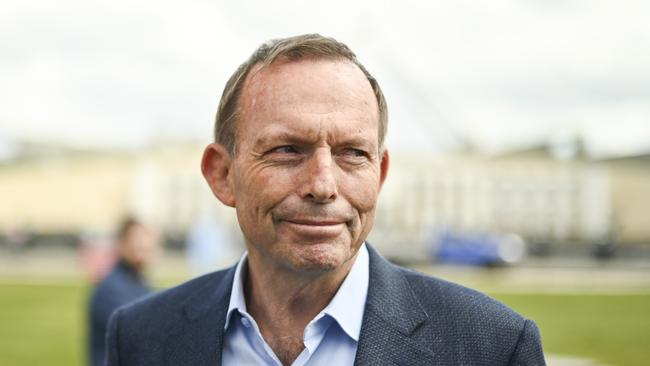
“This indicates two things: first, a flagrant denial of democracy and second, a massive predilection for bureaucracy,” he told The Daily Telegraph.
“The majority of ratepayers, I believe, voted for 10 per cent.
“There is no great improvement that the extra spending would generate, other than more bureaucracy.
“Perhaps it’s time for a rates boycott where we refuse to pay the extra 30 per cent and dare council to sue people.”
If a person refuses to pay their rates in NSW, the Local Government Act allows councils to take legal action that includes selling a ratepayer’s property to recover the amount owed.
Several Sydney councils’ websites also indicate they charge interest, which accrues daily, on overdue rates.
Meanwhile, the number of Sydney metropolitan councils that ran at an operating deficit in the 2023/24 financial year has increased compared to six years ago, new data collected by the Office of Local Government states.
There were 11 Sydney councils running at a deficit in the last financial year.
Nine Sydney councils were recorded with an operating deficit in 2017/18.
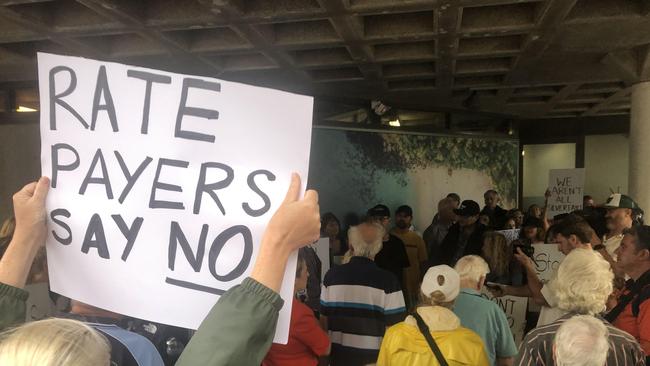
Prior to council amalgamations in 2016, residents were promised that the mergers would save ratepayers $2 billion over 20 years by improving council cash flow. Yet the number Sydney of councils operating on a deficit in 2024 barely shifted from pre-amalgamation levels, despite there being far less councils.
It comes as multiple councils are attempting to increase their rates, with North Sydney also proposing a 87 per cent hike and Ku-ring-gai council expected to vote for a rate increase in coming weeks.
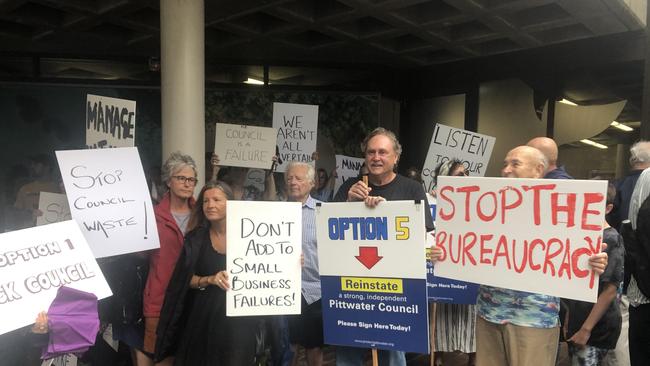
The new data has prompted the state opposition to urge councils to look at auditing their own books before raising rates, with Liberal leader Mark Speakman calling on the Minns government to request a review of council expenditure and entitlement policies.
“Some councils are slugging families with outrageous rate hikes while refusing to look at their own cost control — rorting residents with no scrutiny, no oversight and no justification,” he said.
“Some cry poor but waste ratepayer money … ratepayers don’t fund junkets so bureaucrats can sip lattes and navel-gaze.”
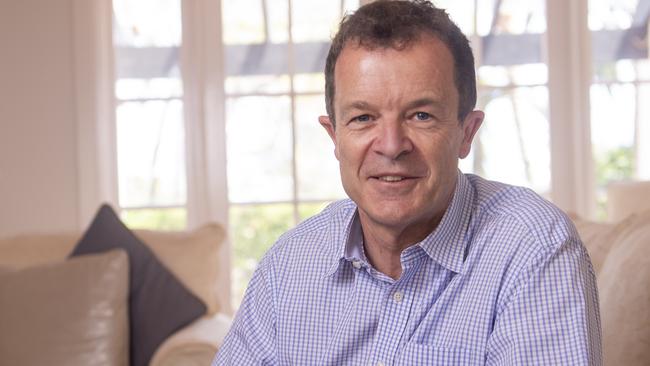
Council Watch president Dean Hurlston, whose organisation advocates on behalf of ratepayers across Australia, said local authorities have “a spending problem”.
“Every report, every investigation, shows councils have become a bloated, inefficient, never-ending self-serving bureaucracy that spends on itself,” he said.
The personal salaries of council chief executives and general managers has also drastically increased.
In 2016/17, the chief executive of Ku-ring-gai council earned $335,000, however in 2023/24 they forked out more than $799,000 in one year for general manager remuneration. Ku-ring-gai council has indicated the figure was so high due to the hiring of a new general manager plus the termination payments of the departing one. The current total remuneration package for the current Ku-ring-gai general manager is $430,000.
Expenditure on expensive external contractors for some councils has also blown out over the last seven years.
Northern Beaches Council has had a 461 per cent cost increase in contractors, despite having 1,800 staff worth $159m.
The council spent $74.5m on contractors in 2022/23, up from $14.6m in 2016/17 when the council was amalgamated.
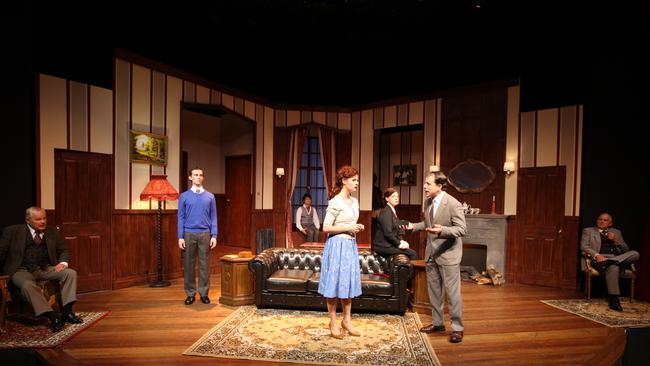
The council paid contractors $345,000 to put on a performance of Agatha Christie’s murder mystery The Mousetrap, while also paying $267,000 for an audiovisual upgrade of the council chambers.
A Northern Beaches council spokesperson said contracts were awarded for “activities that require specialist expertise or a deemed to deliver a higher return to the ratepayer”, adding the Mouse Trap had been a ticketed event.
Meanwhile, North Sydney council, which has a cash flow problem that has been caused in part by the $90m redevelopment of its Olympic pool, also spent $1.5m on a street art program and more than $3.1m on building gender neutral facilities on North Sydney Oval.
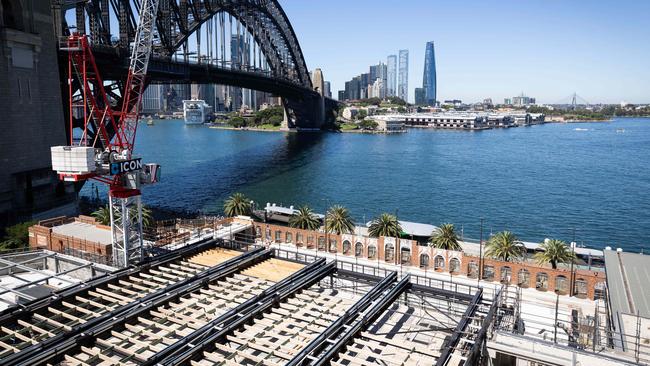
Local Government Minister Ron Hoenig said he expected councils to find savings before increasing rates but did not commit to an independent productivity review of local governments.
“Accounting red tape and various regulatory changes over decades means the financial performance of councils are opaque and often hidden from councillors themselves,” he said.
“I have made it very clear to councils that they should be looking to find savings before asking their ratepayers to fork out more during a cost of living crisis.”
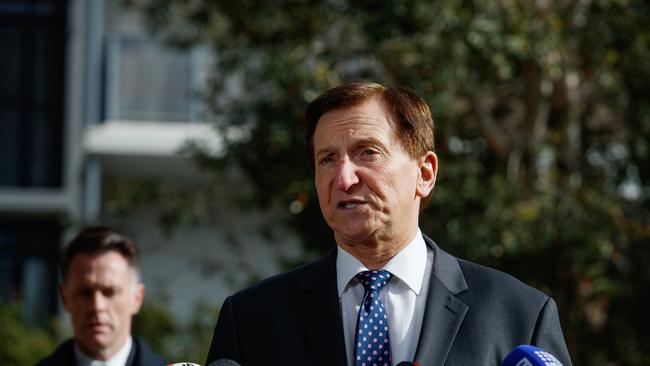
Local Government NSW President Mayor Phyllis Miller acknowledged many local councils were experiencing financial difficulties but believed the answer was to allow councils to set their own rates instead of having to apply to independent body IPART for significant rate increases.
“LGNSW has long been warning of the numerous threats to the financial sustainability of local government – the most prominent being rate pegs restricting income and the growing practice of cost shifting, where local councils are continually picking up the bill for state and federal services,” she said.
Do you have a story for The Daily Telegraph? Message 0481 056 618 or email tips@dailytelegraph.com.au





